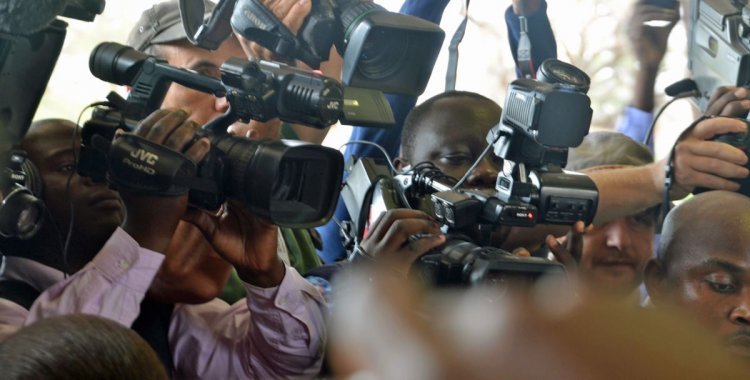These are the draft Law on Community Radios and the draft Law on Opinion Polls and Surveys, which complement the media legislative package, composed by the Laws of Press, Television, Broadcasting, the Media Regulatory Authority, the Journalist Statute, the Advertising Law, approved in 2016.
According to the Secretary of State for Social Communication, Nuno Caldas Albino, after about five years it seems appropriate to adapt the legislative package of the sector to the current context and the challenges facing the media and journalists.
The ruler pointed out that the two draft bills respond to the concerns of citizens and a number of concerns relating to the economic, social and political dynamics that prevail in the country.
The governor pointed out that the purpose and objectives of the public consultation are to collect as many opinions and contributions as possible, from the launch of the consultation this Wednesday until March 24th, followed by the release of the report on March 31st of this year. The deadline may be extended for another 15 or 30 days if necessary.
"We intend the public consultation to be seen as a transparency mechanism of public power by putting under discussion with society in general and the journalist class in particular, visions and issues of interest for the improvement and elevation of the media," he stressed.
The contributions can be made electronically, through the address www.consultapublica.gov.ao, by auscultation, between March 12 and 14, of socio-professional associations, partners, journalists and stakeholders in civil society, and finally, by individual contributions of any citizen, journalist in particular or interested, sent directly to the Ministry of Telecommunications, Information Technology and Media on paper, in a sealed and identified envelope.
The nationwide consultation will be carried out in the provinces by the media offices.
In the technical presentation of the proposal, lawyer Albano Pedro Sebastião, from the Commission for the Revision and Adjustment of the Legislative Package for the Media Sector, said that the revision of the package was established based on two basic principles, namely the constitutional harmonization of all the sector's legislation and with the norms of public international law, relative to the exercise of the communication and press rights.
"For the current legislation process we will have to take into account the African Union's declarations regarding legislation in the Media sector and the UNESCO's recommendations, which largely focus, especially, on what is going to be the novelty to be launched in this legislative package, which is the Community Radios Law", he said.
According to Albano Pedro Sebastião, the commission established seven principles for the elaboration of this legislative package, which briefly are related to the need to promote a greater space for the exercise of press freedom, "which means that there is a great concern in dosing the sanctions and penalties applied in the exercise of press freedom, in order to encourage the proliferation of news, of information, in the exercise of this same activity.
"We also take into account a principle that recommends greater competition among agents, organs and services of the media sector, given the recommendation of the executive's program on the diversification of the economy, that for this desideratum the media sector could not be left out," he stressed.
The lawyer stressed that these principles should facilitate the processes of legalization and formalization of services, organs of the media sector, highlighting also questions about the need to reduce the burden of sanctions contained in the legislative package, considering the need to enable sanctions of patrimonial nature in detriment or reducing the incidence of criminal sanctions.
In his intervention, the Minister of Telecommunications, Information Technology and Media, Manuel Homem, said that the process represents a factor of legislative democratization, with a participatory pendant, to mobilize the best normative solutions that fit the policy of open, progressive and adequate to the challenges in the new times.
"Corresponding to the calls of the President of the Republic for an open media and a broad promotion of the exercise of freedom of expression, communication and press," said the minister.







